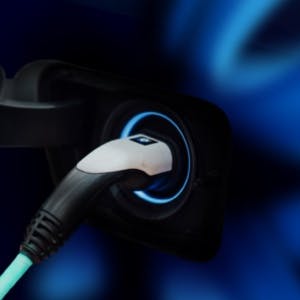- Home
- All updates
- EDGE Insights
- Industries
- Company Search
- My Watchlists (Beta)
All Updates
ONE LFP EV batteries close in on performance of NCM batteries
Hexagon unveils Advanced Compensation for metal 3D printing
Eden AI raises EUR 3 million in seed funding to accelerate product development
Wiz acquires Dazz to expand cloud security remediation capabilities
Immutable partners with Altura to enhance Web3 game development and marketplace solutions
OneCell Diagnostics raises USD 16 million in Series A funding to enhance cancer diagnostics
BioLineRx and Ayrmid partner to license and commercialize APHEXDA across multiple indications
SOPHiA GENETICS announces global launch of MSK-IMPACT powered with SOPHiA DDM
Biofidelity launches Aspyre Clinical Test for lung cancer detection
Spendesk partners with Adyen to enhance SMB spend management with banking-as-a-service solution
Mews acquires Swedish RMS provider Atomize to enhance Hospitality Cloud platform

EV Economy
ONE LFP EV batteries close in on performance of NCM batteries
-
Our Next Energy (ONE), a US company developing lithium iron phosphate (LFP) long-duration energy storage systems and EV batteries, reported that its Aries II lithium iron phosphate (LFP) battery pack has closed the gap in range and mass to within 6% of leading nickel cobalt manganese (NCM) battery packs currently used in EVs.
-
ONE has been striving to close the energy density gap between the two batteries for several years and has now succeeded, also showcasing a 20%–30% energy density increase over other LFP battery systems. Currently, the majority of EVs sold in the US use NCM batteries due to higher energy densities.
-
ONE used the stability of the LFP to minimize the restricted impact areas within the battery pack. The team also reduced the weight of the pack through the use of lower-cost raw materials in the cell and using more advanced materials at the pack level. Such increases in energy density and reduction in weight enabled ONE’s Aries II battery to provide over 350 miles (~563 km) of range to an EV. The company expects to achieve full IRA compliance and to begin the production of its Aries II batteries in 2024 at its 20 GWh ONE Circle manufacturing facility in Michigan, US.
-
Analyst QuickTake: In June 2023 , ONE signed a joint development agreement (JDA) with Nano One Materials to collaborate on the validation, qualification, and production of a North American supply of LFP cathode active materials (CAM). The CAM that is to be produced at Nano One’s facility will be used in ONE’s Aries and Gemini batteries. ONE initially began the production of its Aries battery pack in early 2023 following the company’s USD 300 million Series B funding round in February 2023 .
Contact us
By using this site, you agree to allow SPEEDA Edge and our partners to use cookies for analytics and personalization. Visit our privacy policy for more information about our data collection practices.